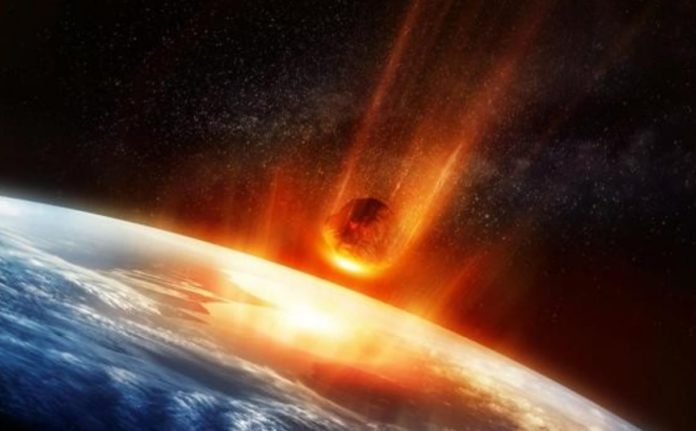Study reveals what exactly kills the species during Meteorite collision.
For decades, researchers have puzzled about why some space rocks cause mass extinctions while others, even massive ones, do not.
For decades, experts have been perplexed by the topic, but a study conducted by academics at the University of Liverpool and the Tenerife Technological and Renewable Energy Institute may have found an answer.
As the researchers explain in a paper released in the ‘Journal of the Geological Society’ in London, when it comes to meteorites, size isn’t as important as mineral composition, at least not in terms of their size.
The Earth has been hit by thousands of space rocks over its lengthy history. And, if the rocks are huge enough, the dust formed by the impact can totally veil the planet’s atmosphere, resulting in catastrophic climate changes and the extinction of large proportions of the planet’s animal and plant life.
But it’s not always the case.
The research team, which included paleontologists, asteroids experts, mineralogists, cloud physics experts, and climate modelers, sought to understand why meteorites such as Chixulclub, whose impact wiped out the dinosaurs and 75% of the planet’s species, were much more lethal than many others of comparable size that did not cause extinction.
To study this, the researchers looked at 44 significant impacts that occurred over the course of 600 million years. And they did it by employing a completely novel method, which involved determining the mineral content of the dust that was emitted into the atmosphere at the time of impact. In this way, they discovered that meteorites colliding with rocks rich in potassium feldspar, a mineral that is very common, invariably result in mass extinction episodes, regardless of the size of the meteorites.
Greenhouse effect
Despite the fact that potassium feldspar is not harmful, it is a potent mineral aerosol that has an impact on cloud dynamics, allowing more solar radiation to flow through the clouds. This, in turn, causes the earth to warm and the climate to shift. As more greenhouse gas emissions, like big volcanic eruptions, happen, the atmosphere gets more sensitive to them.
For Dr. Chris Stevenson, co-author of the study, “For decades scientists have puzzled over why some meteorites cause mass extinctions, and others, even really big ones, don’t. It’s surprising when we put together the data: life carried on as normal during the 4th largest impact with a crater diameter of ~48 km, whereas an impact half the size was associated with a mass extinction only 5 million years ago.”
According to the researcher, “Many kill mechanisms have been proposed, such as large volcanic eruptions, but just like meteorites, these don’t always correlate with mass extinctions. Using this new method for assessing the mineral content of the meteorite ejecta blankets, we show that every time a meteorite, big or small, hits rocks rich in potassium feldspar it correlates with a mass extinction event.”
These unexpected findings open up a whole slew of fresh study possibilities. In these occurrences, what exactly is killing the species, and how long can the effects of the potassium feldspar last, are both unknowns.
Until now, only meteorites have been capable of altering the aerosol regime in the atmosphere, which has had a significant impact on the climate.
However, as Stevenson adds, current human activities constitute a comparable mechanism, with growing emissions of mineral aerosols into the atmosphere as a result of increased industrial activity.
This is an important clue for further investigation.
You were reading: New study explains why some meteorites can kill more creatures on Earth while others, even larger ones, can’t
